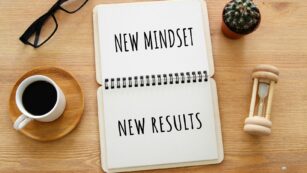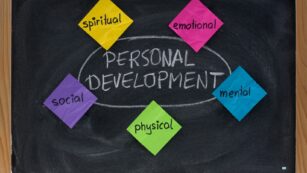In today’s fast-paced world, personal development is not just a luxury—it’s a necessity. Whether it’s honing a new skill, improving communication abilities, or fostering resilience, setting personal development goals is essential for anyone looking to thrive both professionally and personally. These goals act as stepping stones, guiding individuals through the complexities of their careers and personal lives.
Personal Development Goal
Understanding the Importance of personal development goals is crucial for one’s emotional, physical, and intellectual growth. It provides a roadmap for personal and professional success, adapting seamlessly in a world where change is constant.
Importance of Setting Personal Goals
 Setting personal goals is fundamental for achieving long-term growth and satisfaction. Individuals who detail their aspirations increase their potential to transform these ambitions into achievements. Goals give direction, foster motivation, and ensure that a person remains focused amid distractions or setbacks. They facilitate self-awareness, allowing individuals to understand their true potential and limitations. Moreover, personal goals serve as a benchmark for tracking progress and assessing effectiveness of personal growth strategies.
Setting personal goals is fundamental for achieving long-term growth and satisfaction. Individuals who detail their aspirations increase their potential to transform these ambitions into achievements. Goals give direction, foster motivation, and ensure that a person remains focused amid distractions or setbacks. They facilitate self-awareness, allowing individuals to understand their true potential and limitations. Moreover, personal goals serve as a benchmark for tracking progress and assessing effectiveness of personal growth strategies.
Examples of Personal Development Goals
Personal development goals vary widely, depending on individual needs and ambitions. Common goals include:
-
Skill Enhancement: Acquiring new skills or enhancing existing ones, such as learning a new language or advancing digital skills, equips individuals for evolving job markets.
-
Health and Fitness: Committing to improved health practices, such as regular exercise or a balanced diet, enhances overall well-being.
-
Career Advancement: Goals such as earning a promotion or changing career paths drive professional growth.
-
Personal Relationships: Improving communication skills or investing time in relationships can lead to deeper personal connections.
-
Mindfulness and Stress Management: Practicing mindfulness or learning stress management techniques can improve mental health and resilience.
Strategies for Achieving Your Personal Development Goals
Achieving personal development goals demands strategy and commitment. These strategies enhance clarity and ensure progress in your developmental journey.
Setting SMART Goals
 Setting SMART goals forms the foundation of effective personal development. SMART stands for Specific, Measurable, Achievable, Relevant, and Time-bound. Specific goals clearly define what you aim to achieve, avoiding vague descriptions. For instance, instead of aiming to “get better at public speaking,” a Specific goal would be “complete a public speaking workshop by Q3.” Measurable goals enable tracking progress through quantifiable standards, such as “read 12 books in a year” instead of “read more.” Achievable goals are realistic and attainable, not setting one up for failure. Goals must be Relevant to one’s broader life aspirations to maintain focus and motivation. Lastly, Time-bound goals have a defined deadline, providing a sense of urgency and helping prioritize daily activities.
Setting SMART goals forms the foundation of effective personal development. SMART stands for Specific, Measurable, Achievable, Relevant, and Time-bound. Specific goals clearly define what you aim to achieve, avoiding vague descriptions. For instance, instead of aiming to “get better at public speaking,” a Specific goal would be “complete a public speaking workshop by Q3.” Measurable goals enable tracking progress through quantifiable standards, such as “read 12 books in a year” instead of “read more.” Achievable goals are realistic and attainable, not setting one up for failure. Goals must be Relevant to one’s broader life aspirations to maintain focus and motivation. Lastly, Time-bound goals have a defined deadline, providing a sense of urgency and helping prioritize daily activities.
Maintaining Motivation and Accountability
Maintaining motivation and accountability is crucial for the success of any personal development plan. First, establishing a routine helps incorporate goal-related activities into daily life, enhancing consistency. For example, dedicating 30 minutes each morning to language learning can significantly improve proficiency over time. Second, using tools like journals or apps to track progress holds one accountable and provides motivational feedback as milestones are reached. Additionally, sharing goals with friends or mentors can create a support network that offers encouragement and helps keep one accountable. If motivation dips, reflecting on the reasons for setting the goals initially can reignite one’s determination to succeed.
Common Challenges in Personal Development
Personal development, while rewarding, poses several common challenges that can impede progress. Addressing these obstacles effectively enhances the likelihood of achieving set goals.
Overcoming Procrastination
 Procrastination often undermines personal development goals by delaying essential actions. Individuals typically procrastinate due to fear of failure or a lack of clear, immediate rewards. Establishing a structured timetable helps in breaking tasks into manageable segments, thereby reducing the overwhelm that triggers procrastination. Furthermore, setting small, interim goals can maintain momentum and provide frequent sense of accomplishment.
Procrastination often undermines personal development goals by delaying essential actions. Individuals typically procrastinate due to fear of failure or a lack of clear, immediate rewards. Establishing a structured timetable helps in breaking tasks into manageable segments, thereby reducing the overwhelm that triggers procrastination. Furthermore, setting small, interim goals can maintain momentum and provide frequent sense of accomplishment.
Dealing With Setbacks
Setbacks are inevitable in any personal development journey. They can result from external factors like changes in personal circumstances or internal factors such as losing motivation. To manage setbacks effectively, it’s crucial to maintain a flexible mindset and adapt strategies as needed. Learning from setbacks by analyzing what went wrong and how to avoid similar issues in the future is essential for resilience and continued growth. Additionally, staying connected with supportive peers or mentors can provide encouragement and guidance necessary to overcome these challenges.

